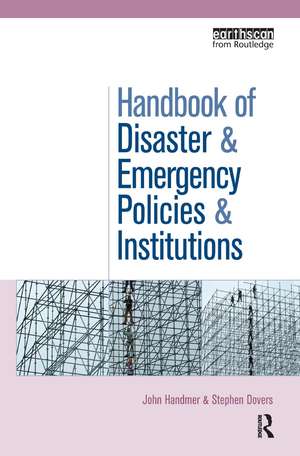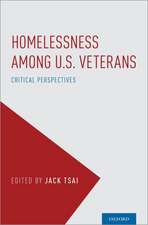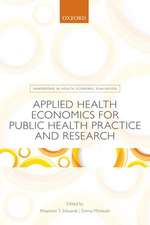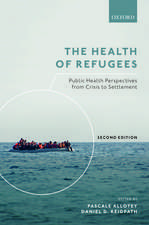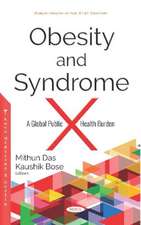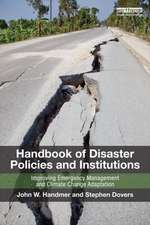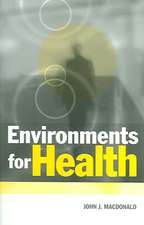The Handbook of Disaster and Emergency Policies and Institutions
Autor John Handmer, Stephen Doversen Limba Engleză Hardback – 11 oct 2007
| Toate formatele și edițiile | Preț | Express |
|---|---|---|
| Paperback (1) | 312.43 lei 6-8 săpt. | |
| Taylor & Francis – 17 mai 2016 | 312.43 lei 6-8 săpt. | |
| Hardback (1) | 988.47 lei 6-8 săpt. | |
| Taylor & Francis – 11 oct 2007 | 988.47 lei 6-8 săpt. |
Preț: 988.47 lei
Preț vechi: 1367.46 lei
-28% Nou
Puncte Express: 1483
Preț estimativ în valută:
189.15€ • 198.14$ • 156.76£
189.15€ • 198.14$ • 156.76£
Carte tipărită la comandă
Livrare economică 08-22 aprilie
Preluare comenzi: 021 569.72.76
Specificații
ISBN-13: 9781844073597
ISBN-10: 1844073599
Pagini: 208
Dimensiuni: 156 x 234 x 21 mm
Greutate: 0.54 kg
Ediția:1
Editura: Taylor & Francis
Colecția Routledge
Locul publicării:Oxford, United Kingdom
ISBN-10: 1844073599
Pagini: 208
Dimensiuni: 156 x 234 x 21 mm
Greutate: 0.54 kg
Ediția:1
Editura: Taylor & Francis
Colecția Routledge
Locul publicării:Oxford, United Kingdom
Cuprins
Introduction * Part I: Constructing the Problem * The Nature of Emergencies and Disasters * The Nature of Policy and Institutions * Part II: Constructing the Response * A Policy and Institutional Framework for Emergencies and Disasters * Owning the Problem: Politics, Participation and Communication * Framing the Problem: Identifying and Analysing Risk * Responding to the Problem: Policy Formulation and Implementation * Not Forgetting: Monitoring, Evaluation and Learning * Institutional Settings for Emergencies and Disasters: Form, Function and Coordination * Part III: Constructing the Future * Future Prospects * Index
Notă biografică
John Handmer is Innovation Professor at RMIT University, Melbourne, Adjunct Professor at The Fenner School of Environment and Society, The Australian National University, and Visiting Professor, Flood Hazard Research Centre, Middlesex University, UK. Stephen Dovers is Professor at The Fenner School of Environment and Society, The Australian National University and Adjunct Principal Research Fellow, School for Environmental Research, Charles Darwin University, Australia.
Recenzii
'In this timely and insightful book, Handmer and Dovers develop a systematic understanding of the policy processes and frameworks needed to set the foundations for success when hazards threaten. It will be highly appreciated by policy makers and practitioners in rich and poor countries alike.'Reid Basher, Coordinator, Policy and Inter-Agency Coordination, UN International Strategy for Disaster Reduction'Too much emergency response to disasters has the hallmarks of panic or the deployment of immediate tactics without a strategic vision. This book is a significant contribution to seeking to correct this tendency. It does this admirably, by emphasizing both the practical and the tactical within a strong strategic framework that should help to make emergency response both better and more sustainable.'Edmund Penning-Rowsell, Head, Flood Hazard Research Centre, Middlesex University, London, UK'Emergency management, public policy and institutional settings are inextricably linked but the interactions are poorly understood. Handmer and Dovers have provided new and perceptive insights which will have far-reaching influences on understanding and future directions. I wish this book had been available when I was head of Australia's federal emergency management agency.'Alan Hodges, AM, Former Director General Emergency Management Australia'This book is a must-read for anyone who hopes to understand and influence emergency policy. Covering the nature of emergency management and the complex institutional framework within which it operates, the authors' comprehensive treatment of the subject is learned, internationally relevant and, yes, passionate.'Paul Gabriel, Manager, Emergency Management Policy, Office of the Emergency Services Commissioner, Melbourne, Australia'This is a fresh, invigorating and above all challenging look at emergency management. It takes a big-picture view, going beyond mere 'disaster events' to explore the links between emergency management and sustainability in the contexts of institutions and policy. All those who have leadership roles in the field should read it carefully: it will re-shape the way they approach their task.'Chas Keys, former Deputy Director General of the New South Wales State Emergency Service, Australia'A clear, concise, in-depth analysis..it makes a pivotal contribution to our understanding of hazards' DeMond S. Miller, Disasters.
